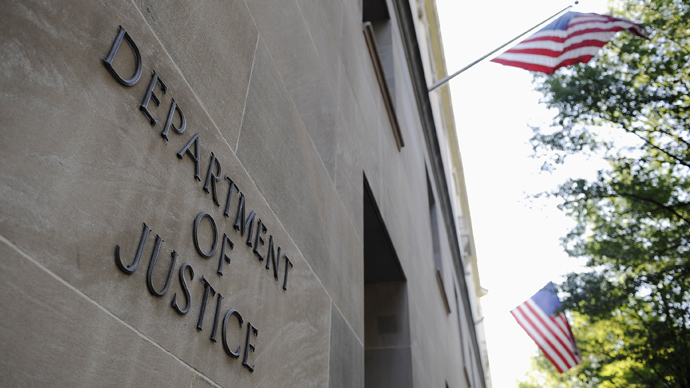AP chief tells staff 'thousands and thousands' of calls obtained by DOJ

Associated Press president Gary Pruitt provided greater details regarding the US Justice Department’s seizure of phone records during a town hall meeting, stating that the probe had included “thousands and thousands” of incoming and outbound calls.
Earlier this month, the AP itself had broken the news that the DOJ had secretly monitored the communications of AP journalists in a bid to identify the source of a leak regarding a foiled terrorist attack linked to Yemen.
Though the Department of Homeland Security and the White House had independently confirmed at the time that there was no credible evidence of a terror plot to commemorate the death of al-Qaeda leader Osama bin Laden, Pruitt disputed those statements during an interview with CBS last week.
“We felt the American public needed to know this story,” Pruitt told CBS, calling claims from Washington that there was no credible evidence of a terrorist plot “misleading to the American public.”
That story evidently prompted the DOJ to pursue a warrant to monitor the communications of AP staff, and kept that order hidden by invoking a clause within the Espionage Act claiming a national security interest.
On Tuesday, Pruitt told members of the AP that the Obama administration had acted as “judge, jury and executioner” by obtaining the phone records of the organization, echoing similar comments he had made during his appearance on CBS’ “Face the Nation.”
Pruitt further pressed the point that the AP had originally held off on publishing its scoop on the failed attempt to attack a jetliner bound for the US, which began to unravel after a CIA operation in Yemen. According to the AP chief, the news agency waited five days until its sources indicated the Obama administration intended to publicly disclose details of the plot.

The DOJ’s subpoenaed records from 20 different phone lines over two months, though Pruitt on Wednesday alluded to the fact that thousands of calls had been intercepted during that period.Phone records included personal and bureau lines for several AP national security reporters and editors, as well as the main line for AP reporters working directly out of the House of Representatives press gallery.
According to the AP’s own reporting on the phone tappings, in testimony in February CIA Director John Brennan noted that the FBI had questioned him about whether he was AP’s source in the foiled terror plot story, which he denied.Brennan further called the release of the information to the media about the terror plot an “unauthorized and dangerous disclosure of classified information.”
“The rules require them to come to us first. But in this case they didn’t, claiming an exception, saying if they had it would have posed a substantial threat to their investigation. But they have not explained why it would, and we can’t understand why it would,” said Pruitt to CBS.
According to a source cited by the Daily Mail on Tuesday, the House Committee on the Judiciary is said to be targeting US Attorney General Eric Holder over fears he may have lied to Congress during a May hearing regarding private phone records of AP staff, according to a source close to the congressional probe.
Holder has denied involvement in the subpoena process that obtained the AP’s phone records. Only days after that May 16 hearing, NBC News reported that the Attorney General had personally signed off on another subpoena to obtain the phone records of Fox News Channel’s James Rosen in another leak investigation.














